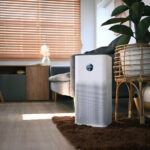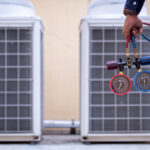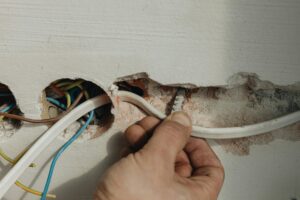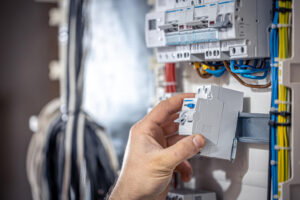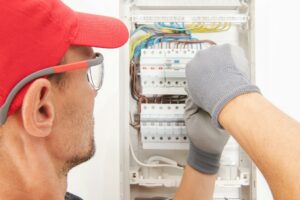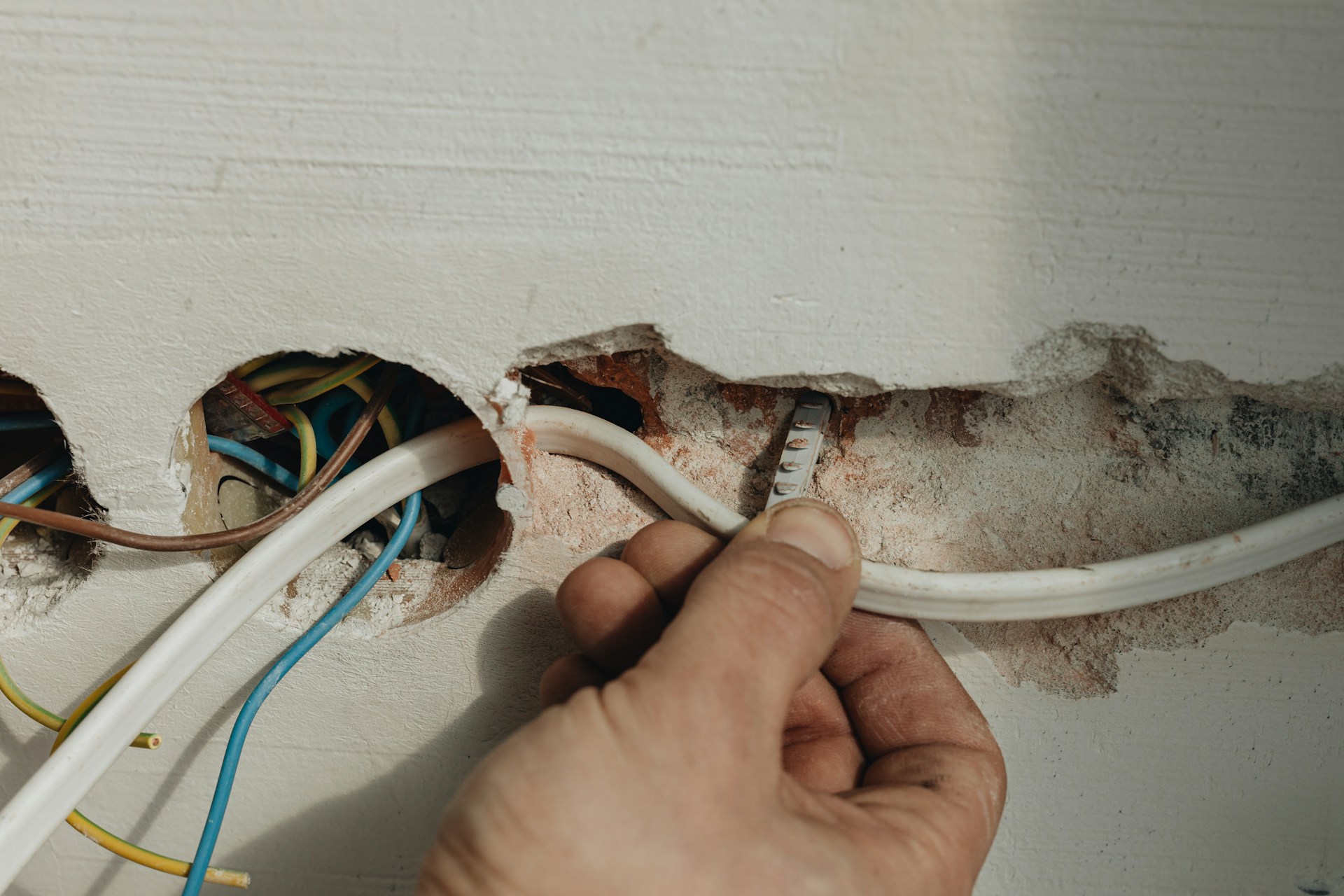
Electrical fires can be devastating, but they are often preventable with some simple precautions. Keeping your home and family safe starts with understanding how electrical fires happen and taking steps to minimize the risk. In 2024, it’s more important than ever to ensure that your home’s electrical systems are up to date and functioning properly.
One of the first steps is to regularly check and maintain your electrical wiring. Over time, wiring can become frayed or damaged, leading to potential fire hazards. It’s essential to have a professional inspect your wiring to catch any issues early. Additionally, using electrical devices safely and not overloading outlets can significantly reduce the fire risk.
Another crucial aspect of fire prevention is installing and regularly testing safety devices like smoke alarms and Ground Fault Circuit Interrupters (GFCIs). These devices can alert you to danger and cut power in risky situations, providing an extra layer of protection. Practicing good habits, such as keeping flammable materials away from electrical devices and educating family members about electrical safety, can further ensure your home’s safety. Regular professional maintenance also plays a vital role in preventing unforeseen electrical problems.
Taking these steps can help you prevent electrical fires and keep your home safe for years to come. By being proactive and aware, you can avoid disaster and enjoy peace of mind knowing your home is protected.
Check and Maintain Your Electrical Wiring
Regular Inspection and Professional Assessment
Keeping your electrical wiring in good condition is crucial for preventing fires. Have a licensed electrician inspect your wiring at least once a year. They’ll check for any wear and tear or potential issues that might lead to a fire. Catching problems early means they can be fixed before causing significant damage. Regular inspections are especially important if you live in an older home, as wiring systems can deteriorate over time.
Addressing Frayed or Exposed Wires
One of the most common causes of electrical fires is frayed or exposed wires. If you notice any damaged wires, don’t ignore them. Call an electrician to repair or replace the wires immediately. Even a slight nick or cut in the wiring can lead to sparks, which can ignite a fire. Always use electrical tape to temporarily cover exposed wires until a professional can fix them properly.
Updating Older Wiring Systems
Older homes often have outdated electrical systems that may not handle the demands of modern appliances. If your home still uses knob-and-tube wiring or aluminum wiring, consider upgrading to a safer, more efficient system. Modern wiring can handle higher loads and is less likely to overheat. Upgrading your wiring can also increase your home’s value and ensure the safety of your electrical system.
Use Electrical Devices Safely
Avoid Overloading Outlets and Power Strips
Overloading outlets and power strips is a common cause of electrical fires. Never plug too many devices into a single outlet or power strip. Each outlet and power strip has a maximum load capacity, and exceeding that limit can cause overheating and fires. Spread out your electrical devices across multiple outlets and avoid daisy-chaining power strips.
Proper Use of Extension Cords
Extension cords are handy but can be dangerous if misused. Always use extension cords that are rated for the intended use. Avoid running them under rugs or through doorways where they can get damaged. Never use a damaged or frayed extension cord; replace it immediately if you notice any signs of wear. Also, use extension cords temporarily and not as a permanent solution.
Unplugging Unused Appliances
Unplugging appliances when not in use is a simple habit that can significantly reduce fire risks. Appliances and devices that remain plugged in can still draw electricity and potentially overheat. This includes small items like phone chargers and toasters, which are often left plugged in. By unplugging unused appliances, you save energy and reduce the chances of an electrical fire.
Install and Test Safety Devices
Smoke Alarms and Carbon Monoxide Detectors
Smoke alarms and carbon monoxide detectors are essential for keeping your home safe. Install smoke alarms on each floor and near sleeping areas. Test them monthly to ensure they’re working correctly and replace batteries at least once a year. Carbon monoxide detectors should also be installed in key areas, especially near bedrooms and fuel-burning appliances. These devices can alert you to danger, giving you time to evacuate and call for help.
Ground Fault Circuit Interrupters (GFCIs)
GFCIs are designed to protect you from electric shock. They shut off power when they detect a ground fault, commonly caused by moisture. Install GFCIs in areas with water, such as kitchens, bathrooms, and outdoor outlets. Test them monthly by pressing the “test” and “reset” buttons to ensure they’re functioning correctly. If you don’t have GFCIs in these areas, consider having an electrician install them for added safety.
Surge Protectors and Circuit Breakers
Surge protectors safeguard your electronics from power surges, which can cause fires or damage equipment. Plug sensitive electronics into surge protectors, and replace them every few years or after a major surge. Circuit breakers also play a crucial role in preventing electrical fires. Ensure your circuit panel is up to code and have it inspected regularly. If your breakers trip frequently, this could signal a problem that needs professional attention.
Practice Good Habits for Electrical Safety
Keep Flammable Materials Away from Electrical Devices
Keeping your home safe involves more than just hardware—good habits play a huge role. One of the simplest is keeping flammable materials away from electrical devices. Items like paper, cloth, and cleaning supplies should never be stored near heaters, lamps, or other electronics, as they can easily catch fire if they get too hot.
Educate Family Members on Electrical Hazards
Educate your family on electrical safety to create a safer environment at home. Teach kids about the dangers of sticking objects into outlets and the importance of not touching electrical devices with wet hands. Make sure everyone knows how to unplug devices safely and what to do in case of an electrical emergency.
Schedule Regular Professional Maintenance
Regular professional maintenance is essential for a safe home. Schedule yearly check-ups with an electrician to inspect your home’s electrical systems and make necessary repairs. Professional inspections catch issues that might go unnoticed and ensure your entire system operates safely and efficiently.
Final Thoughts
Preventing electrical fires in your home requires a combination of proper maintenance, safe usage of devices, and good habits. By regularly checking and maintaining your electrical wiring, you can catch problems early and prevent hazards. Safe practices like avoiding overloading outlets and unplugging devices when not in use can also significantly reduce risks.
Installing and regularly testing safety devices like smoke alarms, GFCIs, and surge protectors adds an extra layer of protection for your family. Good habits, such as keeping flammable materials away from electrical devices and educating family members about electrical hazards, further enhance your home’s safety.
Taking these steps ensures your home remains safe and secure from electrical fires. For comprehensive electrical maintenance and safety assessments, turn to Turner On Services. Our expert team in Cincinnati, Ohio, is ready to help you create a safer home environment. Contact us today to schedule an inspection and keep your home protected.


